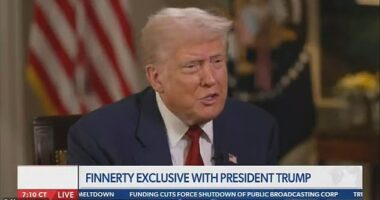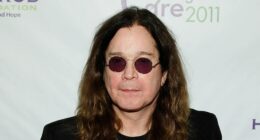Young Australians, who will outnumber Baby Boomers at the polls for the first time ever this federal election, will have issues like housing affordability and climate change front of mind when they cast their votes.
“This is a critical moment in time because such a significant change in the electoral demographic brings with it a shift in the issues we see deciding elections,” Monash University’s Centre for Youth Policy and Education Practice director Lucas Walsh said.

“Young Australians are inheriting not only the weight of greater voting influence but also disproportionate challenges related to affordable accommodation, work and climate change.”
These challenges, which Walsh said arose due to the increasingly tumultuous and dynamic political environment, have resulted in new expectations from politicians.
Young voters are now most concerned with housing, employment, climate change, inequality and health, according to a new report by the Centre for Youth Policy and Education Practice that surveyed at least 500 Australians aged 18-24.
“Politicians beware: Millennials and Gen Z voters will make their decisions on the issues they are seeing affecting their community, rather than the colour of the shirts the candidates are wearing,” Walsh said.

The report found three in four voters aged under 24 want immediate action on affordable housing after the cost of living and inflation put upward pressure on rent prices and mortgages.
Prime Minister Anthony Albanese has poured $32 billion into housing policies, including $10 billion for a Housing Australia Future Fund and 1.2 million to build new homes.
Opposition Leader Peter Dutton has focused his housing policies on migration and foreign students and investors, which he claims has caused a supply shortage for citizens.
He has pledged to invest $5 billion to fund essential infrastructure at housing development sites, implement a two-year ban on foreign investors and temporary residents from buying existing homes and reduce permanent migration from 185,000 to 140,000 for two years if elected.

What politicians have been up to on the election campaign trail
Of the voters the report surveyed, half cited employment opportunities as an urgent issue with 86 per cent experiencing financial difficulties some time in the past 12 months and 63 per cent believing they will be financially worse off than their parents.
An Australian Bureau of Statistics report analysing the effects of the COVID-19 recession on the country’s youth labour market in 2022 found that some groups of young people have failed to bounce back despite a relatively strong labour market.
Albanese has established fee-free TAFE and announced he will cut student debt by 20 per cent, in addition to $3 billion in HECS debt that was wiped last year.
Dutton has this week walked back on his plan to restrict work-from-home arrangements and fire 41,000 government employees.
He said he will rely on workers quitting their jobs and a hiring freeze to reduce the public service sector, which he has repeatedly claimed is “wasteful” spending.

The report found that 74 per cent of young voters thought the federal government needs to do more to address climate change.
Australia has a net zero emissions target of 2050 but, according to Climate Tracker, our progress to achieving the goal has been poor.
On Sunday, Albanese announced a $2.3 billion program to reduce the cost of a battery by 30 per cent to make it cheaper for households to install new solar and battery systems.
While he bolsters renewable energy policies, Dutton has his own multi-billion-dollar plan to build seven nuclear power plants across Australia.
Inequality and discrimination
The report found almost one in three young Australians were concerned about racial and gender inequality. Another 29 per cent were worried about gender inequality at work and 21 per cent were worried about LGBTQIA+ discrimination.
The Albanese government has introduced measures aimed at progressing women’s equality, including an almost $1 billion anti-domestic violence package, legislation to help close the gender gap and subsidising childcare.
Dutton has pledged a royal commission to address domestic violence.

Mental health is a big voter issue ahead of the election, with the Monash report finding that 21 per cent of young Australians said they had poor or very poor mental health.
In a pre-election announcement today, Albanese has pledged to invest $1 billion into mental health including $500 million for 20 youth specialist care centres, $224 million for 31 new and upgraded Medicare mental health centres and more than $200 million for 58 new, upgraded or expanded headspace services.
Meanwhile, Dutton has promised $500 million to restore the 20 subsidised mental health sessions and a $400 million youth mental health package.






